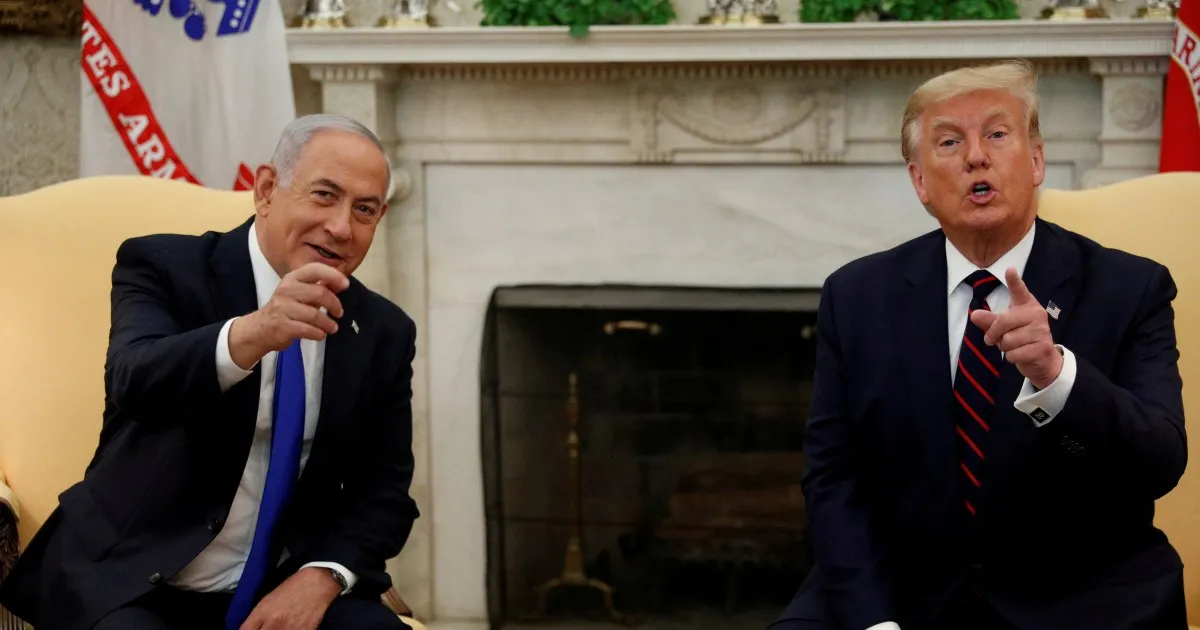Palestinians shiver at even more hawkish US policy as Donald Trump, a fierce critic of the Obama-Biden administration’s foreign policy who often clashed with President Barack Obama, eyes a return to the White House. Trump’s first term saw a seismic shift in favor of Israel, marked by moving the embassy from Tel Aviv to Jerusalem, tacit support for the annexation of Palestinian land, and a “Palestinian entity” that will lack sovereignty.
President Joe Biden has rhetorically endorsed a two-state solution but has largely continued these policies, leaving Palestinians with little room for self-determination. The second term of Trump may continue the same status quo but with an even deeper tilt toward consolidating Israel’s control over the West Bank and sidelining Palestinian statehood indefinitely.
Under both administrations, the three pillars of US foreign policy toward Israel and Palestine have been astonishingly consistent: abandonment of the two-state solution, advancement of Arab normalization with Israel through the Abraham Accords, and isolation of Iran. Trump set the precedent for this trajectory, acting swiftly to recognize Israeli claims over Jerusalem and large parts of the West Bank while normalizing relations between Israel and several Arab countries.
Touting normalization policies with countries like Saudi Arabia, Biden remains on this trajectory. Critics argue that the policy will only serve to enhance Israeli control, abolish the right of return for Palestinian refugees, and further isolate the Palestinian cause.
Here, the strategy stretches beyond the Palestinian borders; Iran is caught in the crosshairs. Meanwhile, Trump withdrew the United States from the Joint Comprehensive Plan of Action (JCPOA) nuclear agreement. Biden has not re-entered it; he left Iran on the sanctions list. This pact by the Trump administration is forging a new Middle Eastern security alliance with Israel and Arab states to effectively check Iran and thus protect US interests in the region.
Observers believe this deal could cement American power and resources in the Middle East, where no regional player, like Iran, will have an opportunity to challenge it while also deepening Israeli ties with the US.
The consequences for Palestinians in a second Trump term are grim. However, under Biden’s policies, Israel has gradually been able to expand its space, so Trump’s rhetoric about planning the official annexation of most of the West Bank seems to place an end to any hope for a Palestinian state. For example, while Trump’s allies and supporters, such as far-right Israeli ministers Ben Gvir and Smotrich, are still driving an agenda for a more militant approach toward achieving the consolidation of Israeli control, this would represent not just expanding Israeli settlement settlements but possibly expulsions of Palestinians under the cover of “peace and security.”.
Trump’s second term, if it follows this blueprint, threatens to erase the “Palestinian Question.” The very efforts to eliminate Palestinian aspirations may lead to regional instability and tensions with neighboring states like Jordan and Lebanon, already on high alert. Opposition is likely to increase, at least in the eyes of the Palestinians and other Middle Eastern nations increasingly fed up with ongoing wars and political oppression.















